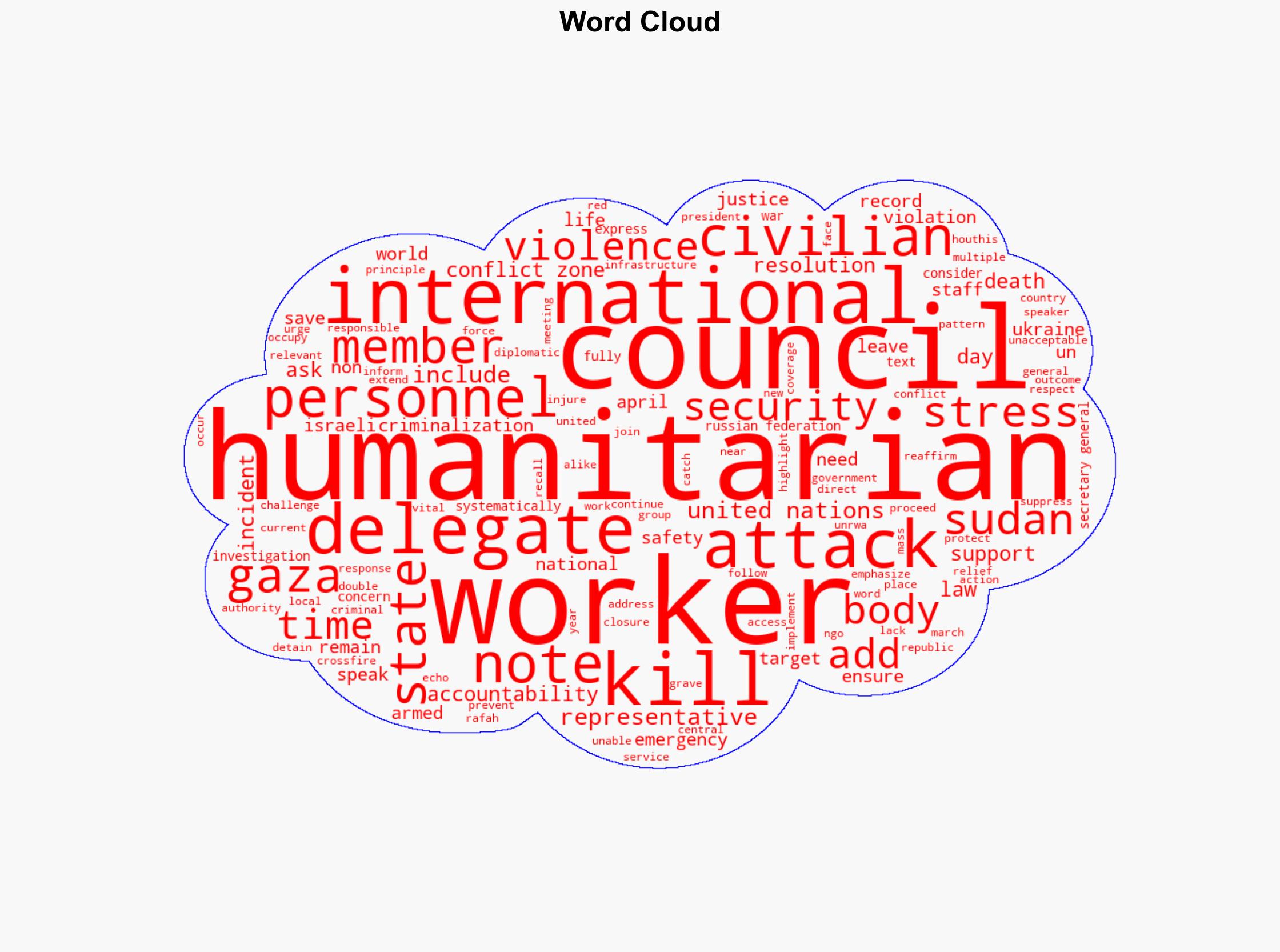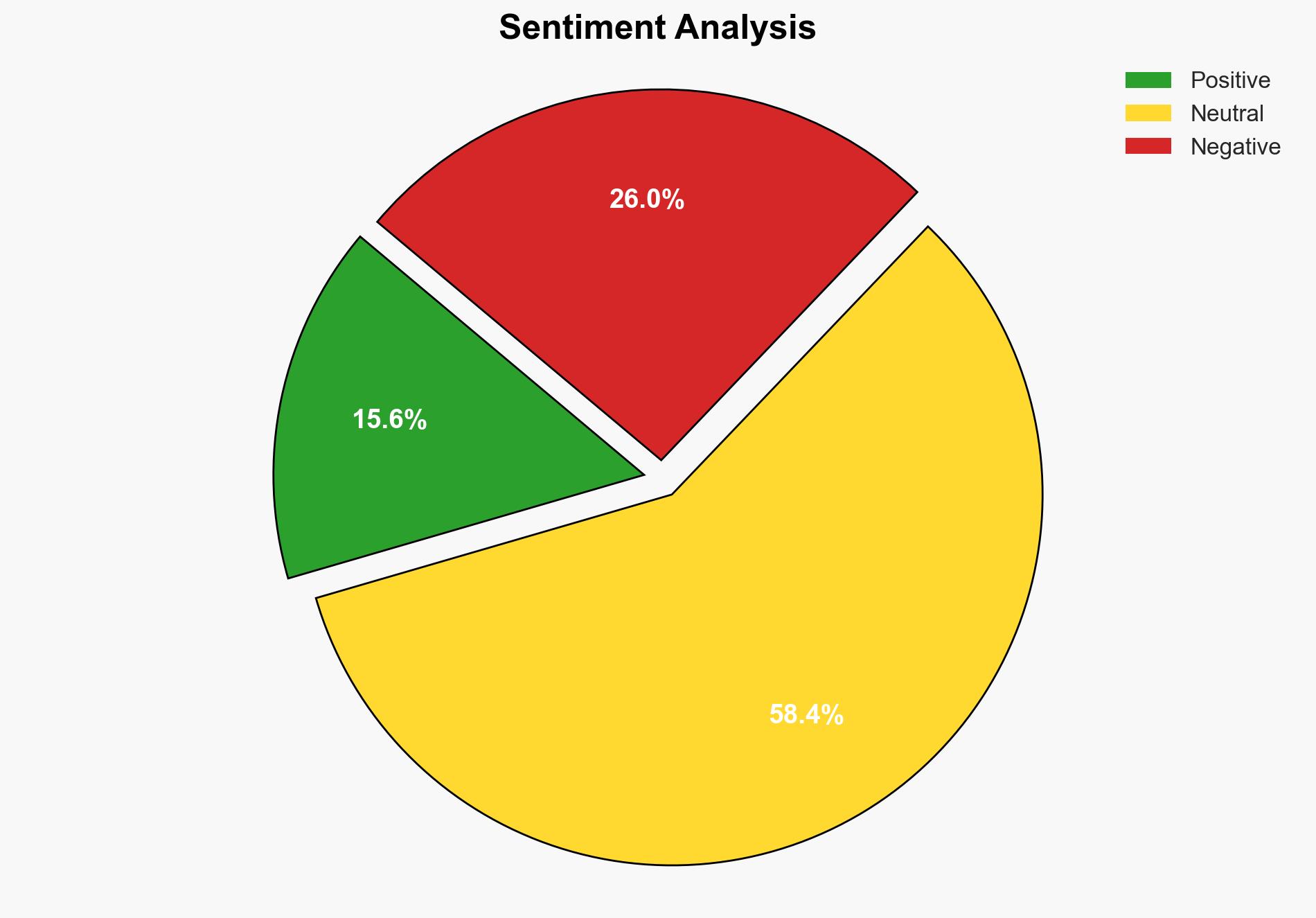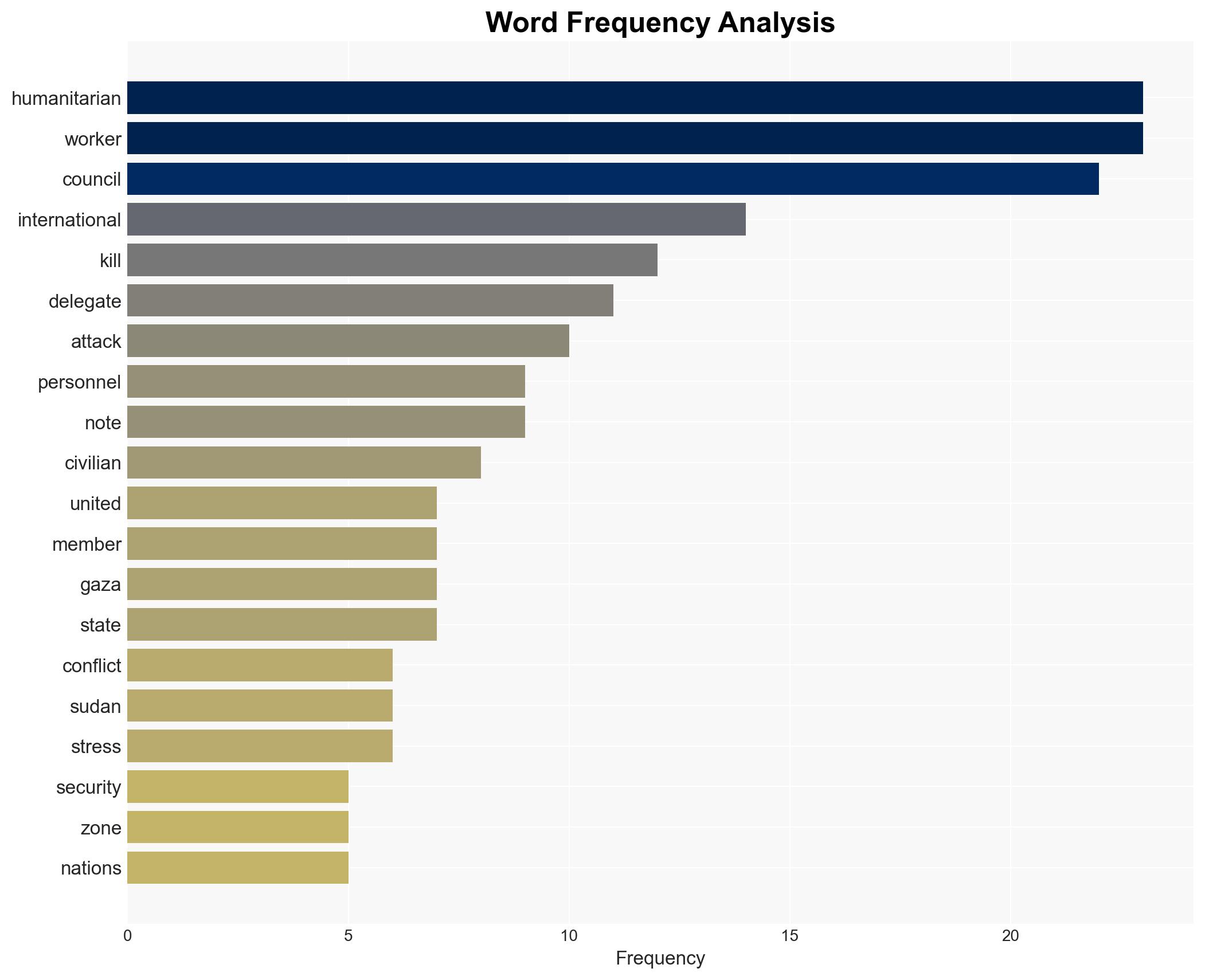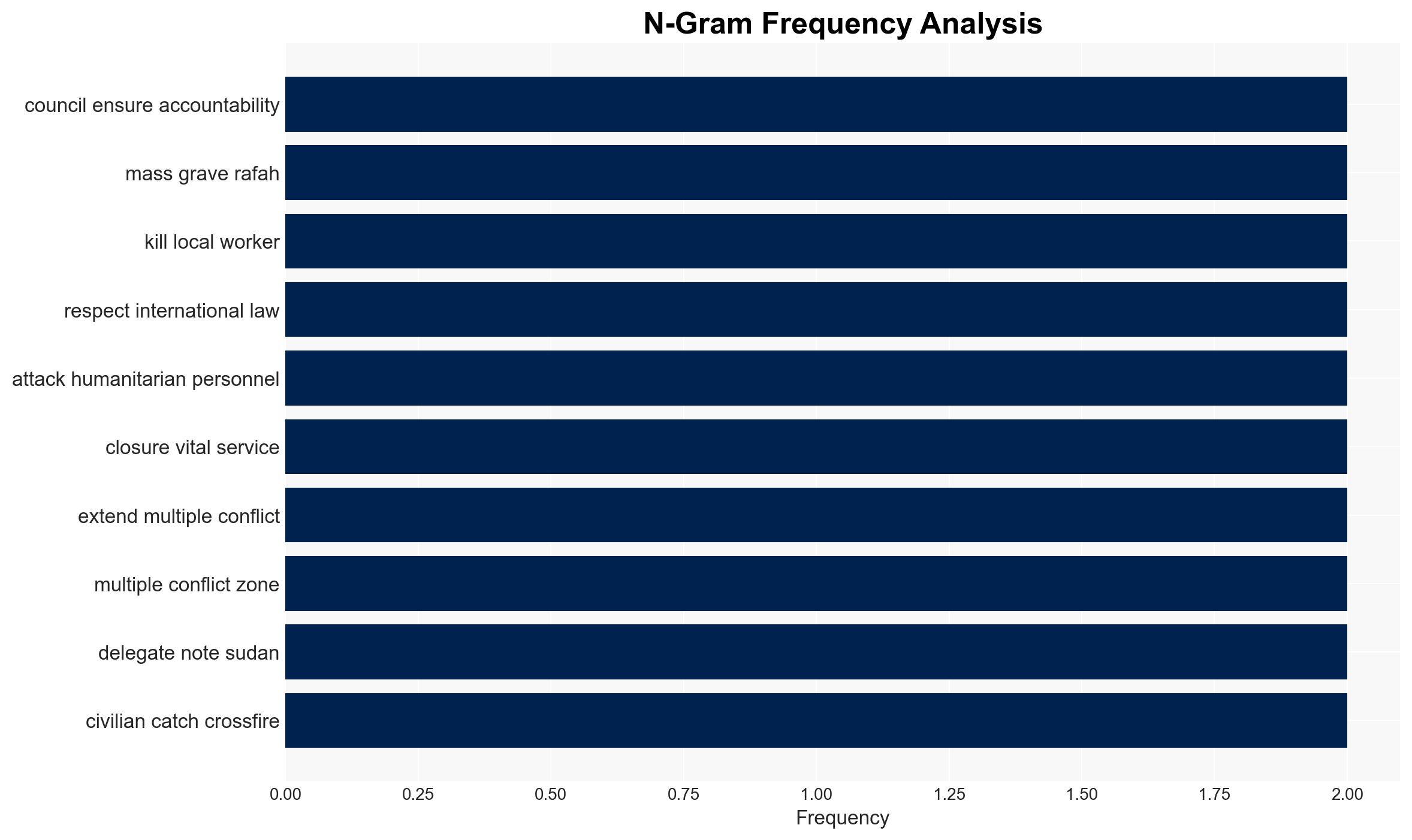Amid Record High Killing of Humanitarian Workers Speakers Implore Security Council to Ensure Accountability for Attacks on Personnel in Conflict Zones – Globalsecurity.org
Published on: 2025-04-03
Intelligence Report: Amid Record High Killing of Humanitarian Workers Speakers Implore Security Council to Ensure Accountability for Attacks on Personnel in Conflict Zones – Globalsecurity.org
1. BLUF (Bottom Line Up Front)
The report highlights a significant increase in attacks on humanitarian workers in conflict zones, with speakers urging the Security Council to enforce accountability measures. The lack of a robust international legal framework and inconsistent political compliance are exacerbating the situation. Immediate action is required to protect humanitarian personnel and ensure justice for victims.
2. Detailed Analysis
The following structured analytic techniques have been applied for this analysis:
General Analysis
The analysis reveals an unprecedented rise in violence against humanitarian workers, particularly in conflict zones such as Sudan and Gaza. The primary challenges include a lack of international legal protections, insufficient media coverage for local workers, and the impact of disinformation campaigns. The situation is further complicated by the criminalization of humanitarian activities and the targeting of personnel based on identity.
3. Implications and Strategic Risks
The increase in attacks poses significant risks to national security and regional stability. The targeting of humanitarian workers can lead to a breakdown in essential services, exacerbating humanitarian crises. The lack of accountability may embolden perpetrators, leading to further violence. Economic interests are also at risk as instability in conflict zones can disrupt international aid efforts and economic activities.
4. Recommendations and Outlook
Recommendations:
- Strengthen international legal frameworks to protect humanitarian workers and ensure accountability for attacks.
- Enhance media coverage and public awareness of the risks faced by local humanitarian workers.
- Implement measures to counter disinformation and misinformation campaigns targeting humanitarian organizations.
- Encourage diplomatic engagement to address the criminalization of humanitarian activities.
Outlook:
Best-case scenario: International cooperation leads to stronger legal protections and accountability, reducing attacks on humanitarian workers.
Worst-case scenario: Continued impunity and lack of action result in increased violence and disruption of humanitarian efforts.
Most likely outcome: Incremental improvements in legal protections and accountability, with ongoing challenges in high-risk areas.
5. Key Individuals and Entities
The report mentions significant individuals and organizations, including Joyce Msuya and Gille Michaud, as well as unnamed humanitarian organizations operating in conflict zones.





